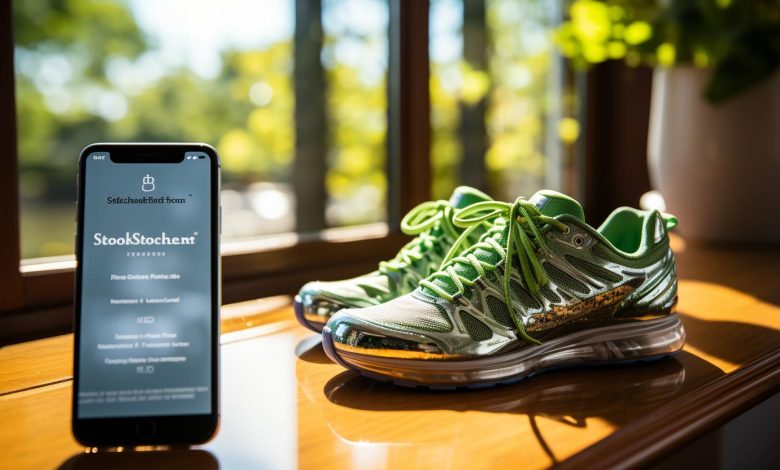Podcasts for Beginner Runners: Tips and Guidance for Starting Your Journey

Are you ready to hit the ground running? Lace up your sneakers and get ready for a journey like no other.
In this article, we’ll guide you through the world of podcasts for beginner runners, providing tips and guidance every step of the way. Whether you’re aiming for a 5k or dreaming of crossing that marathon finish line, we’ve got you covered.
So grab your headphones and let’s dive into the exciting world of running together!
Finding the Right Podcast: A Beginner’s Guide

If you’re new to running and looking for the perfect podcast to guide you, you’ll want to know how to find the right one. Luckily, there are plenty of podcasts out there that cater specifically to beginner runners like yourself.
These podcasts serve as a source of motivation and guidance, helping you stay inspired throughout your journey.
One type of podcast that can be particularly helpful is those focused on boosting motivation. These podcasts feature stories from seasoned runners who share their personal experiences and offer valuable advice. Listening to these inspiring stories can help keep your spirits high when the going gets tough.
Another type of podcast that may interest you is those centered around running gear essentials. As a beginner runner, it’s important to have the right gear to ensure comfort and safety during your runs. These podcasts provide recommendations on shoes, clothing, accessories, and more, helping you make informed decisions when purchasing your running essentials.
By listening to these types of podcasts, you’ll not only gain knowledge but also feel supported in your running journey. They will motivate you to lace up your shoes and hit the pavement while equipping you with essential tips along the way.
Now that we’ve explored finding the right podcast for beginners let’s dive into some essential tips for beginner runners.
Essential Tips for Beginner Runners

Make sure you stretch properly before and after your runs to prevent injuries. Running is a great way to improve your fitness and overall health, but it’s important to take precautions to avoid any potential setbacks. Here are some essential tips for beginner runners like yourself:
– Invest in proper running shoes: Having the right footwear is crucial for preventing foot and leg discomfort. Look for shoes that provide good support, cushioning, and a comfortable fit.
– Warm up exercises: Before you start running, spend a few minutes doing warm-up exercises like jogging in place or lunges to prepare your muscles for the activity ahead.
– Start slow and gradually increase intensity: It’s tempting to push yourself too hard at first, but it’s important to build up your endurance gradually. Start with shorter distances or intervals of running and walking, then slowly increase the duration or distance as you feel more comfortable.
– Listen to your body: Pay attention to any signs of pain or discomfort during your runs. If something doesn’t feel right, take a break or seek guidance from a healthcare professional.
Setting Realistic Goals: How to Start Your Running Journey

To set realistic goals for your running journey, it’s important to consider your current fitness level and gradually increase the intensity of your workouts. Creating a running schedule can help you stay consistent and track your progress. Start by setting aside specific days and times for your runs, making sure to include rest days for recovery. As you begin, focus on building endurance rather than speed or distance. Incorporating intervals of walking and jogging can be a great way to ease into running if you’re a beginner.
Another key aspect of starting your running journey is building mental resilience. Running can be physically demanding, but it also requires mental strength and determination. To build mental resilience, try practicing positive self-talk during your runs. Remind yourself that you are capable of achieving your goals and push through any difficulties or doubts that arise.
Here’s an example of a simple running schedule to get you started:
| Day | Workout | Duration |
|---|---|---|
| Monday | Easy Run | 20 mins |
| Wednesday | Interval Training | 25 mins |
| Friday | Rest | – |
| Sunday | Long Run | 30 mins |
Nutrition and Hydration Tips for Beginner Runners

Building a strong foundation of nutrition and hydration is essential for beginner runners. As you embark on your running journey, it’s important to fuel your body properly before and after each run. Here are some tips to help you make the most out of your nutrition and hydration:
– Pre-run snacks: Fuel up with a light snack that combines carbohydrates and protein about 30 minutes to an hour before your run. Some great options include a banana with peanut butter, Greek yogurt with granola, or a small handful of nuts with dried fruit.
– Hydration: Stay hydrated throughout the day by drinking plenty of water. Aim to drink at least 8 cups (64 ounces) per day, but increase this amount if you’re running in hot weather or for longer distances. Don’t forget to hydrate during your runs as well by carrying a water bottle or planning routes near water fountains.
– Post-run recovery: After completing your run, replenish your body with a balanced meal or snack within 30 minutes. Include both carbohydrates and protein to help repair muscles and restore energy levels. Good options include a turkey sandwich on whole wheat bread, chocolate milk, or a smoothie made with fruits and Greek yogurt.
Avoiding Common Injuries: Tips for a Healthy Start

As you start your running journey, it’s crucial to prioritize injury prevention for a healthy start. One common injury that beginner runners often face is shin splints. These are characterized by pain in the lower leg, specifically along the shinbone.
To prevent shin splints, it’s important to ease into your running routine gradually and allow your body time to adapt. Start with shorter distances and gradually increase your mileage over time.
Another key aspect of injury prevention is wearing proper footwear. Investing in a good pair of running shoes that provide adequate support and cushioning can make a significant difference in reducing the risk of injuries. The right shoes will help absorb shock and minimize stress on your muscles and joints.
Remember, taking care of yourself as you embark on this new fitness journey is essential. Listen to your body and don’t push yourself too hard too soon. It’s normal to experience some discomfort or muscle soreness initially, but if you feel persistent pain or notice any unusual symptoms, it’s important to seek medical advice.
By prioritizing injury prevention through gradual progression and investing in proper footwear, you’ll set yourself up for a healthy start to your running journey.
Stay committed, stay motivated, and enjoy the wonderful benefits that come with becoming a runner!
Conclusion
Congratulations on taking the first step towards becoming a runner! With the right guidance and support, you can achieve your running goals and embrace a healthier lifestyle.
Remember to listen to your body, set realistic goals, fuel yourself properly, and avoid common injuries.
So why wait? Lace up those shoes and hit the road – who knows what amazing things you can accomplish with each stride?
Ready to transform from a beginner to an experienced runner?






